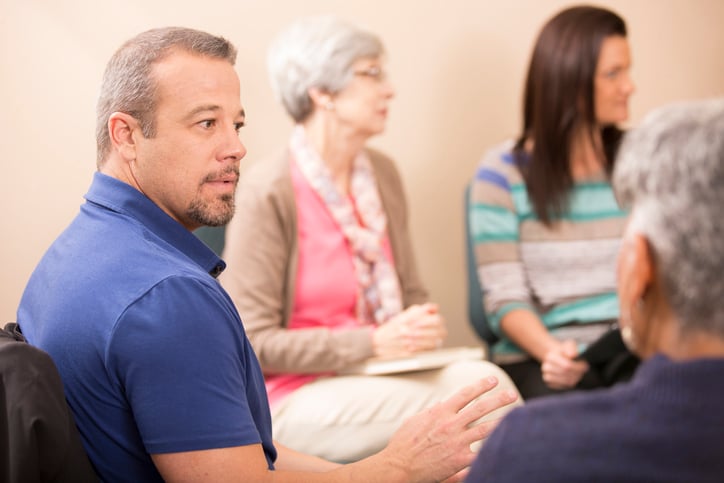
Whether or not you celebrate holidays or traditions at this time of year, it seems like schedules naturally increase. The increased numbers of depression and higher suicide rates, particularly amongst adolescent clients, means your schedule intensifies as well. Dysfunctional relationships of clients and perhaps your own also lead to more work and stress too. More than any other time of the year, this is a time to practice what you preach: to manage your time and stress and check in with your mental health on a daily basis.
Time Management When Emotions Are Intensified
There is a symbiotic relationship between increases in both emotional needs and time spent working with adolescents at this time of the year. As one intensifies, so does the other. Many professionals working in this field have an influx of new clients as well. Not only that but often there is an increase in family and social expectations for you outside of work.
All of these factors lead to increases in both emotional and scheduling stressors for you as a mental health care professional. Both organization and self-care become more important, despite the drain on your own emotional resources and time. Some of the ways to combat emotional and physical overload include:
- Scheduling longer breaks between clients to decompress – if you are not already doing this, make the time. If you are, take extra time.
- Prioritizing your self-care – practice what you preach. You know that taking some time to do something that genuinely makes you happy every day helps you be more effective in all areas of your life.
- Schedule your sleep – there are only 24 hours in a day, and allowing work or stress from work to interfere with your sleep also makes you less effective.
- Exercising – if you are not already, this is the time to start. Don’t wait for a New Year’s resolution. Take a walk at lunch, do some yoga in your office. The exercise will chemically and physically counteract some of the extra stress.
- Meditation, breathing exercises, or other relaxation techniques – whatever you normally do to manage stress, add more into your daily routine.
The Dysfunctional Family Factor
Being emotionally prepared for the onslaught of dysfunction that often accompanies this time of the year can help manage the additional stressors that come with it. Your clients will be dealing with more opportunities to relapse, more depression, and more suicidality. Sometimes, that is even before adding in the dysfunction within their families.
Helping them cope with these very difficult situations can also trigger past or present dysfunction in your own family or relationships if the holidays themselves do not. Being emotionally prepared means being mindful, staying in the moment, and being present for both your clients and yourself.
Saying “No” Is Not a Lack of Compassion
With the additional demands on your time and emotions at this time of year, the word “no” can be the most important word in your vocabulary. Saying no to overtime, social events, charity work, and other very admirable or desirable experiences can help you to keep your cool. In a field that is built on compassion and empathy, it can be difficult to turn the compassion off, even for self-preservation. Saying no does not indicate a lack of compassion; it indicates self-compassion.
Often, these extra commitments are the last straw that leads to stress overload. Taking that time to relax, sleep, spend quiet time with your immediate family, or do something that is just for you can take a breaking point and turn it into a moment of renewal and re-energizing.
Daily Mental Health Check-in
Your clients check in with you mentally and emotionally, but do you take time to weigh in on your own mental health? Checking in at least once a day can help you keep your cool when your schedule heats up. Evaluating your own mental health when you wake up, before you go to bed, at lunch, or all of the above can help you anticipate emotional needs before they hit crisis levels. Ask yourself questions such as:
- How did I sleep/how much did I sleep?
- Did I eat too little, too much, or snack too much?
- Did I exercise?
- Have I done my daily routines, including self-care?
- On a scale of 1-10, how is my mood?
Taking a few minutes to honestly evaluate your overall mental, physical, and emotional health can prevent your own crisis. Additionally, being attentive to your own mental and emotional state can help you to be more effective as you work with adolescents who are in mental and emotional crisis. As the demands on your time and emotions rise, you can rise to the occasion.
As your schedule heats up during this holiday season, remember to find ways to keep your cool. By managing your own time, emotions, and mental state, you will be better able to help the adolescents in your care. When you have adolescents who need more care than you are able to offer, Sustain Recovery could be the solution. Our extended residential care offers both a longer duration of comprehensive supervision, as well as the opportunity to transition back home gradually. Our program offers individualized care in a structured setting that allows adolescents to increase their independence. We understand that substance abuse and mental health are not the problem but rather the way adolescents cope with their problems. Sustain requires adolescents to develop accountability for their own choices and offers the therapeutic support to heal as well. If you think our Irvine, California, program might be a good fit for your client, contact us at (949) 407-9052 for more information.






